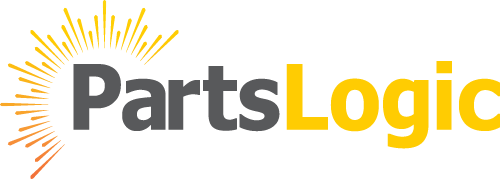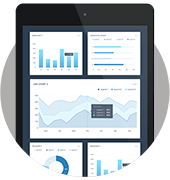In our modern digital era, the internet resembles an expansive ocean of information, with search engines serving as indispensable lifeboats guiding us through its boundless depths. Whether you are looking for a recipe, researching a topic, or shopping for a product, search engines play a pivotal role in connecting you with the relevant information you seek. However, have you ever wondered how search engines provide such fast results? The secret lies in “indexing websites for search engines.”

Table of Content
- What is a Search Index?
- What is Full-Text Search?
- Search Crawlers and APIs
- Fast Indexing: The Need for Speed
- 12 Ways to Improve Your Search Index
- It’s All About Indexing Great Content
What is a Search Index?
You can think of the internet as a library full of books, with each website representing a book within the library. Now, think of a search index as the library’s catalog, containing detailed information about the contents of each book. This catalog, in the case of the internet, is a vast database that search engines create by systematically crawling and analyzing websites.
In simple terms, a search index is like an organized filing system that helps search engines find the right information quickly when someone searches for something online. This database contains details about web pages, keywords, links, and other essential information that helps search engines provide accurate and timely search results.
What is Full-Text Search?
When we talk about indexing websites for search engines, we often encounter the term “full-text search.” Full-text search is a sophisticated technique that allows search engines to scan the entire content of web pages to identify keywords and phrases. It’s like a digital detective that sifts through the text to find the most relevant clues.
Consider this scenario: You want to find a recipe for a classic spaghetti bolognese. You type “spaghetti bolognese recipe” into a search engine. The search engine’s full-text search functionality kicks into action, scanning millions of web pages for the presence of these specific words.
As a result, the search engine quickly identifies web pages that contain the words “spaghetti,” “bolognese,” and “recipe” in various combinations. These pages are then ranked based on their relevance, and you see a list of results that match your query. This process happens in milliseconds, thanks to the efficient indexing of websites for search engines.
Search Crawlers and APIs
To index websites effectively, search engines employ specialized software programs called “crawlers” or “spiders.” These crawlers navigate the web, visiting websites and collecting data to populate the search index. They navigate through links, moving from one page to the next, forming a networked map of interconnected content, much like a spider weaving its web.
Crawlers not only collect text but also gather information about images, videos, and other media on web pages. This comprehensive approach ensures that search engines can provide diverse and multimedia-rich search results.
Additionally, search engines offer Application Programming Interfaces (APIs) that allow website owners and developers to interact with their indexing systems. APIs enable websites to submit their content directly to search engines, ensuring faster inclusion in the search index. This is especially beneficial to websites that publish regularly updated content or are new.
Fast Indexing: The Need for Speed
In the world of online search, speed is of the essence. Users expect search engines to deliver results in the blink of an eye, and search engines strive to meet these expectations. Efficient indexing plays a vital role in making sure that users can access the most up-to-date information quickly.
Imagine you run a news website, and you’ve just published an article about breaking news. You want that article to appear in search results as soon as possible, reaching a broad audience. Efficient indexing enables this capability. Search engines such as Google consistently scan the internet, seeking out fresh content and revisions to already existing pages.
The process of fast indexing involves several key steps:
Crawling: Search engine crawlers regularly visit websites to discover new content or changes to existing pages.
Analyzing: Once a crawler visits a webpage, it analyzes the content, extracts keywords, and assesses the page’s relevance.
Indexing: The search engine adds the webpage and its content to its database, ensuring it’s available for future search queries.
Ranking: The search engine ranks webpages based on their relevance to specific queries, taking into account various factors like keywords, links, and user engagement.
Serving: When a user searches, the search engine finds and displays relevant pages from its index.
Fast indexing is crucial for websites that rely on up-to-the-minute information, such as news outlets, e-commerce stores, and blogs. It ensures that the freshest content reaches users promptly, enhancing the overall search experience.
12 Ways to Improve Your Search Index
Now that we understand the importance of indexing websites for search engines, let’s explore twelve effective strategies to enhance your search index and ensure your content shines in search results:
Keyword Optimization
Keywords are the cornerstone of search engine optimization (SEO). Optimize your content, meta tags, and URLs with strategic keywords to effectively communicate your website’s purpose to search engines and improve its search result ranking. For example, if you’re a freelance photographer based in New York, using keywords like “New York photographer” or “professional photography services” can help potential clients find you online.
Quality Content
Valuable content reigns supreme online, and it’s no surprise why. Compelling, informative, and top-notch content not only draws in visitors but also keeps them engaged on your site for longer. You should prioritize delivering value to your audience, whether you are posting a blog post, creating a video, or designing an infographic. For instance, if you’re a cooking enthusiast sharing recipes on your blog, providing detailed instructions, mouth-watering photos, and personal anecdotes can make your content more compelling and shareable.
Meta Tags Optimization
Effective meta tags, such as title tags, meta descriptions, and meta keywords, are essential for search engines to properly index and showcase your web pages in search results. Crafting compelling and descriptive meta tags can attract users to click on your links, boosting your click-through rate (CTR). For instance, if you’re selling handmade jewelry online, a meta description like “Discover unique handcrafted jewelry pieces crafted with love and attention to detail” can pique users’ interest and drive traffic to your website.
Mobile-Friendly Design
In today’s digital landscape, having a mobile-friendly website isn’t just a nice-to-have—it’s a must. With most people browsing the internet on their phones or tablets, ensuring your site is optimized for mobile devices is crucial. Optimizing your website for different screen sizes and devices not only enhances the user experience but also boosts your search engine rankings. This, in turn, makes it simpler for potential customers to discover your online presence. By ensuring your website is accessible across various platforms, you can reach a wider audience and maintain a competitive edge. For example, if you’re a fashion retailer, having a mobile-friendly website allows shoppers to browse and purchase your products seamlessly, whether they’re using a smartphone, tablet, or laptop.
Site Speed Optimization
In the modern digital world, speed is crucial. People want websites to load fast, and search engines favor speedy sites. You can improve your website’s performance and reduce load times to lower bounce rates and improve the user experience. For instance, if you’re running an online bookstore, optimizing images, leveraging browser caching, and minimizing HTTP requests can help speed up your website and keep visitors engaged.
Structured Data Markup
Using structured data markup like Schema.org gives search engines more information about your content, allowing them to show more detailed snippets in search results. When you add structured data markup to your site, you can improve its visibility and draw in more clicks. For example, if you’re a local business offering yoga classes, adding schema markup for events can help potential students find class schedules, locations, and instructor information directly in search results.
Internal Linking
The importance of internal linking is often overlooked, but it can have a significant impact on SEO. By strategically linking to other pages within your website, you can improve navigation, distribute link equity, and encourage deeper engagement. For instance, if you’re a technology blog discussing the latest gadgets, linking to related articles on topics like smartphone reviews, tech tutorials, and industry news can enhance the overall user experience and keep visitors exploring your site for longer.
Optimize Images
Images play a vital role in web content, but they also need to be optimized for search engines. You can enhance the accessibility and visibility of your images by incorporating descriptive filenames, alt tags, and captions. For example, if you’re a travel blogger sharing photos from your adventures around the world, renaming your image files to include relevant keywords like “sunset-over-grand-canyon.jpg” and adding descriptive alt text such as “breathtaking sunset at the Grand Canyon” can improve your chances of ranking in image search results.
Regularly Updating Content
Freshness matters in the world of SEO and site search. Frequently refreshing and adding new content to your website sends a message to search engines that your site is lively, pertinent, and reliable. For example, if you’re a software company publishing blog posts about the latest industry trends, updating older posts with new information, case studies, and expert insights can help you maintain your competitive edge and attract more organic traffic.
Improve The User Experience
In today’s crowded digital market, user experience plays a key role in differentiating brands. By prioritizing usability, accessibility, and intuitive design, you can create a positive impression and keep visitors coming back for more. For example, if you’re an online retailer, optimizing your checkout process, streamlining navigation, and providing clear product descriptions and images can enhance the overall shopping experience and increase conversion rates.
Earn Backlinks
Backlinks remain a crucial ranking factor in search engine algorithms. Getting top-notch backlinks from well-respected sites can really amp up your website’s trustworthiness and influence. For example, if you’re a travel blogger, guest posting on reputable travel websites, participating in online forums and communities, and reaching out to influencers and journalists for collaborations can help you acquire valuable backlinks and improve your AI search rankings.
Monitor and Analyze Performance
Don’t forget, it’s crucial to keep an eye on how your website is performing and analyze the data regularly. Tools like Google Analytics and Google Search Console are your best friends for this task. They help you track important metrics, spot trends, and make informed decisions to enhance your site’s search visibility. For instance, keeping tabs on your organic search traffic, keyword rankings, and click-through rates can reveal areas where you can improve and refine your SEO strategy for optimal results.
It’s All About Indexing Great Content
In the end, successful indexing for search engines boils down to one fundamental principle: indexing great content. When you consistently create content that’s valuable, informative, and engaging, search engines will definitely take notice. Your content becomes a valuable resource for users, and search engines are more likely to give it a higher ranking in search results.
Think of your website as a treasure trove of knowledge, and search engines as the map that guides users to discover your treasures. You can make sure that your website is not only indexed but also found and enjoyed by people around the world by adhering to best practices for indexing and consistently improving your content.
In conclusion, understanding the intricacies of indexing websites for search engines is essential for anyone looking to make their online presence known. From the concept of search indexes to the importance of full-text search, search crawlers, fast indexing, and effective optimization strategies, this article has provided a comprehensive overview of the topic.
Keep in mind that the secret to success is crafting content that prioritizes people’s needs and truly adds value for users. Begin your quest to index exceptional content, and observe as your website climbs the search rankings, drawing in more visitors and helping you reach your online objectives.
Have More Queries related to the “Site search bar”? Contact our support team via Form with any questions you may have. “PartsLogic” Expert Support Team will be happy to assist you. To learn more about our Site search the blog section and get answers to all your queries.





